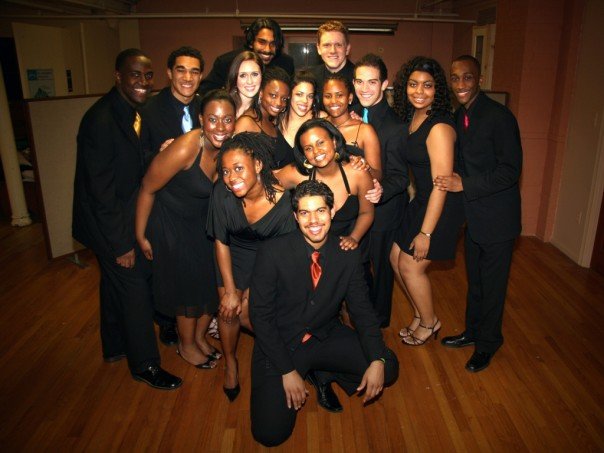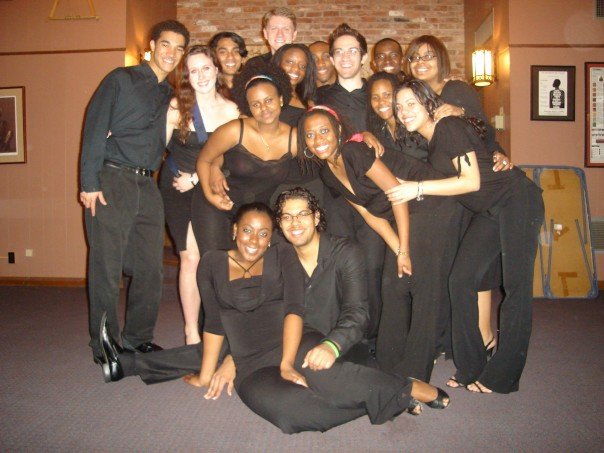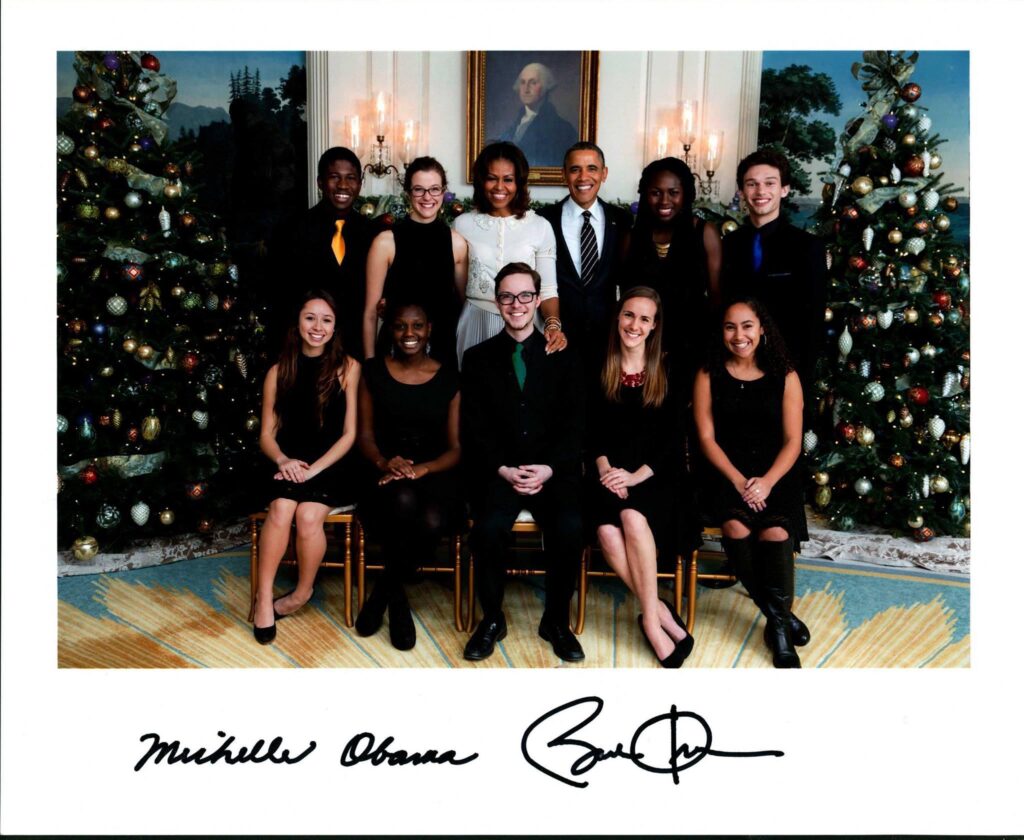36 years and counting: A history of the Shades of Yale
The Shades of Yale was founded in 1988 as a space that uplifts music and traditions of the African diaspora. The group has performed for the Obamas, Lenny Kravitz and Nelson Mandela since.

Courtesy of Olga Pagan
In the fall semester of 1988, Titilayo Ngwenya ’92 performed at a talent show for her pre-orientation program, which would later become “Cultural Connections.” Ngwenya, who had a positive experience playing in a band while in high school, asked the audience after her performance if anyone wanted to form a band at Yale.
Kimberly Dixon-Mays ’92 could tell by Ngwenya’s demeanor that this group would be a collaborative and creative force, she told the News, 37 years later — so she decided to join.
Many followed suit and contacted Ngwenya. Soon after, a co-ed group of eight students began singing music of the African diaspora in one another’s dorms. Eventually, this group would migrate to the Afro-American Cultural Center at Yale.
The group wanted to sing music that reminded them of their upbringing, home and culture, members said. They aimed to create “the most authentic performance of this music,” Ngwenya said. With that, the Shades of Gray – later the Shades of Yale — were born.
“We didn’t see what we wanted within the a cappella scene,” said Ngwenya ’92. “No other group was doing Black music the way we had grown up with, seen, performed and loved. It came naturally for us to do music that we grew up with.”
The name was eventually shortened to Shades, as members felt that the Shades of Gray didn’t reflect the energy and passion of their music. Additionally, the founding members decided that all could join, regardless of musical experience or racial identity.
Eventually, the group joined the Singing Group Council and began tapping new members in the fall of 1989.
While it was incredibly fulfilling work, Ngwenya said, it was also difficult to start a new group from scratch. The group only had eight members at its founding and had a more alto-heavy composition.
The group also had to build a repertoire from scratch and spent much time selecting and arranging the songs they would perform. In doing so, they drew from different musical groups, such as Sweet Honey in the Rock and Take Six.
A lot of these songs continue to be performed today. For instance, the group always begins their fall concert with Sweet Honey in the Rock’s “More Than A Paycheck.” The performance features various movements — clapping, cradling, picking — and was choreographed by Kimberly Dixon-Mays ’92, Shades’ first choreography.
“It seemed odd to not move while singing,” said Dixon-Mays. “I loved to dance and move, and choreographed some things in high school, so it all came naturally. It was one of thousands of examples of how the organization started with the ideas of its members.”
Unlike other a cappella groups on campus, Shades is mission-based. According to the group’s website, it aims to provide a “unique, musically excellent, and spiritually enriching performance experience at Yale University and beyond.”
The members felt called to this mission due to the lack of representation of Black music on Yale campus.
“The mission evolved from us just wanting to make a space to do Black music that we loved in community,” said Ngwenya. “We’ve always performed in spaces that were not your traditional spaces for acapella groups.”
Throughout different iterations and across the years, members have interpreted this mission in various ways. For instance, in January 2025, Shades performed at Yale’s annual MLK Commemoration. In recent decades, Shades has been called to perform “uplifting, inspiring and unifying” songs at protests and social justice events.
At the time of the group’s formation, the group included Nkosi Sikelel’ iAfrika to advocate against South African apartheid and promote solidarity with Black people still affected by apartheid.
In 2007, Shades toured New Orleans following the aftermath of Hurricane Katrina. The group sang at schools and churches throughout the city and interacted with residents.

In one year, the group raised money to perform at different schools in New Haven. Shades continues to host workshops and perform at schools.
“I remember one woman, a teacher, at a school we visited, who said, ‘Thank you for remembering that we’re here,’” wrote Olga Pagan ’10. “That meant so much to me, and speaks to the mission work that Shades has always done and will continue to do.”
In December 2013, the group performed in front of the Obamas at the White House Christmas Party. In August 2003, the a cappella group was invited to perform at the coronation of King Leruo Molotlegi, in front of Nelson Mandela.

Many Shades members were inspired to audition for the group by seeing the group perform. According to Ngwenya, some members were even motivated to attend Yale, as opposed to other schools, out of a desire to audition for Shades of Yale.
“Shades had a different feel about it and I could see myself in it,” said Shades alumni coordinator Aman Fikre ’26. “I wanted to be a part of a group that was musically excellent and I resonated with in its entirety.”
Across different compositions of the group, one thing hasn’t changed, said members. According to Fikre, Shades has continuously been a family and safe haven for those of the group. The group has always been a space where members could have conversations about everything, including politics, race and ethnicity, Ngwenya said.
For many, this community exists well after members leave the group and graduate from Yale. Ngwenya said that her fellow members encouraged her to be “vulnerable” and “leave everything on the stage.”
“I met some of my best friends through Shades. A lot of Shades people I plan to be friends with for the rest of my life,” wrote Dzidedi Azumah ’23. “Also, having a constant creative outlet with some of the best musicians I know did a lot for my soul when I was feeling down.”

In October 2023, Shades celebrated its 35th anniversary.
At the anniversary event, Tony Melson ’00, alongside other musical directors of different years, came up with the first-ever “Generations Jam” — in which different cohorts of the group came together and sang songs from their time.
“ I was surprised to see how emotional it was. They tapped us in and it was one of those instances where you didn’t realize it would be so meaningful,” said Dixon-Mays. “We wanted Shades to exist past our four years, but for it to exist 35 years later, it was really amazing.”
Since its inception, the group has grown to have more than 200 alumni — speaking to the longevity of the group and the power of music, said Ngwenya.
Shades’ final concert of the 2024-25 school year, Spring Jam, will be held in April 2025.







